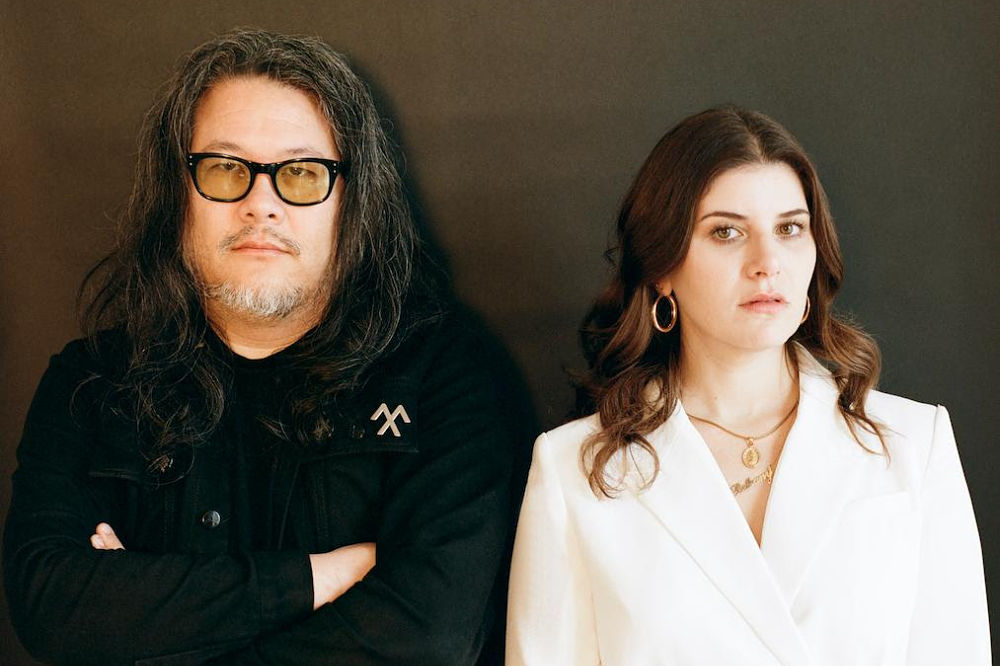Last night, the music video for “Bitch Bad,” Lupe Fiasco’s muddled, mealy-mouthed missive about rap and misogyny was released. Directed by Gil Green — who is best known for ambitious mini-movie-like videos for DJ Khaled and friends and as such, is no stranger to the kind of objectification and thug-celebrating that Lupe’s video attacks — the video stays close to Lupe’s loaded, three-act storytelling rap. Before we get started, note that you won’t read any reference to the music or even style of rapping here, because it is clear that Lupe is mining the moronic “lyrics over everything” attitude, reducing rap to a game of preaching to the converted.
https://youtube.com/watch?v=C3m3t_PxiUI%3Fversion%3D3
The concept of “Bitch Bad” is how two different young people, one male, one female, can encounter mainstream, “bitch”-spewing hip-hop in quite different contexts and come to different conclusions. The first verse focuses on a young boy who listens to these rap songs with his strong-willed mother and as a result, being “a bad bitch,” is something like a good thing — one more way to describe an independent woman. In verse two, a group of girls watch rap videos unsupervised, and as a result, take the lyrics and images at face value. In the third verse, the two characters meet, and the young girl is dressed like the women she saw in the rap video (“Ass, titties, breasts like that, all out to impress like that,” explains Lupe), and seen as unappealing to the young man, raised by a “bad bitch” of a mother. This young girl is the wrong kind of “bad bitch.” A bad “bad bitch.”
The whole thing is an impressive exercise in mansplaining. Its hook goes, “Bitch bad, woman good, lady better,” which sounds sweet and all, but does any female want to be called “a lady”? And although the song is a bit more complex than described above — or really, muddled — it is the umpteenth example of so-called “conscious” hip-hop replacing one type of misogyny with another. While listening to Lupe’s well-intentioned grousing, I couldn’t help but think of Azealia Banks, whose pointed use of “cunt” on “212” blew minds and inspired enthusiasm, and whose clothing style might not meet Lupe’s approval. So much of the song’s characterization seems to hinge on the clothes the female character wears (and also how sweet or “nice” she is).
The video for “Bitch Bad” adds another layer of reckless social commentary when it dramatizes footage from a fictional hip-hop video behind scenes of the kids encountering offensive hip-hop. The fake rap video that plays out behind the group of young girls seems almost exclusively aimed at 50 Cent. We see a guy in a wifebeater mean mugging as a typical “video hoe” writhes on him and his car, and signs for “Sugar Water” engulf the street scene, undoubtedly a reference to 50’s involvement with Vitamin Water. Towards the end of the video, we witness the 50 stand-in and “video hoe” applying blackface, perpetuating the sounds-good-but-doesn’t-really-parse argument that male gangsta rappers and female models/video girls are the modern day equivalent of blackface performers.
The idea for the blackface sequences is swiped from Spike Lee’s brilliant 2000 movie Bamboozled, but that movie literally explains in the its opening moments, that it is a satire. Spike Lee was reducing ugly mainstream representations of blackness to absurdity. The conceit of the movie is that if the standards get low enough and the American public were allowed to eat it up, TV could easily turn into a genuine “coon show.” Lupe and Gil Green, by suggesting a video thug or a video chick are exactly the same as someone performing in blackface, add nothing to the discussion. It sure does seem powerful though, doesn’t it?
In an interview with MTV, Lupe said this about the video: “I just wanted to have a conversation. It was more to just put it out in the world and see what happens.” Lazily leaning on the idea that this moronic video exists to “start a conversation,” excuses Lupe and Green from putting something together that you know, coheres. And “Bitch Bad” will still get points and praise from people looking to celebrate anyone challenging the norms of mainstream hip-hop. So often, the appeal of this kind of commentary on hip-hop, whether it comes from supposedly serious rapper like Lupe Fiasco, or the many thinkpiece-writing raconteurs who spend their days on hip-hop panels that no one cares about, feeds on outdated and simplified hip-hop stereotypes. The use of a 50 Cent stand-in for the video also plays into a decade-old understanding of hip-hop as the world of endless thugging and violence, which as I’ve said time and time again lately, just does not represent what rap music actually looks like and sounds like in 2012.
“Bitch Bad” is, to play Lupe’s game and get histrionic, how you “debase” a “culture.” You twist a rap song into poorly thought-out grab for attention, and give it a muddled video, all under the guise of “starting a conversation,” which implicitly suggests that rap music isn’t having these conversations already. The use of the word “bitch,” sensitively deconstructed by Jay-Z on “99 Problems,” and currently being twisted and challenged by Azealia Banks, Nicki Minaj, and many more female MCs, proves that the discussion doesn’t need a backpack rap hustler selling cynicism.





